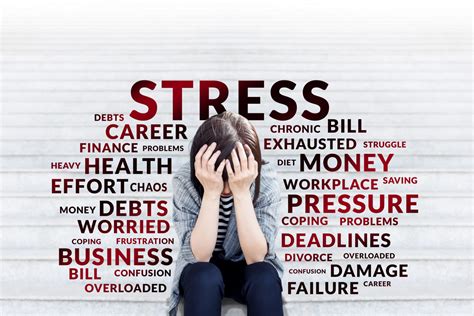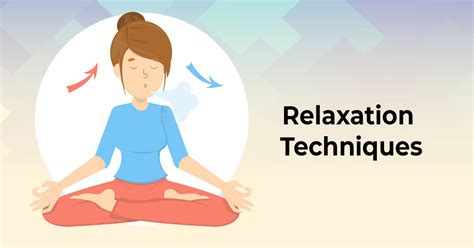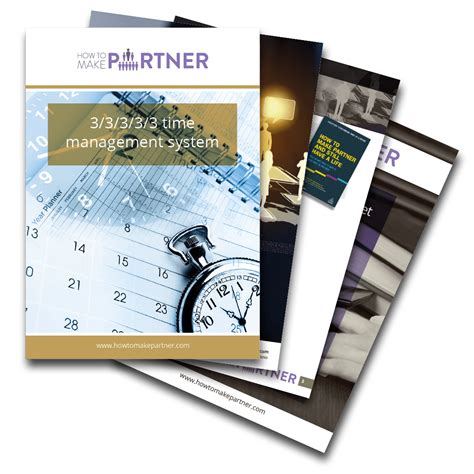Intro
Reduce anxiety with 5 stress management tips, including mindfulness, relaxation techniques, and self-care strategies to improve mental well-being and emotional balance.
Stress is an inevitable part of life, and it can have a significant impact on both physical and mental health. Chronic stress can lead to anxiety, depression, and a weakened immune system, making it essential to develop effective stress management techniques. With the demands of modern life, it's easy to get caught up in a cycle of stress and forget to take care of oneself. However, by incorporating simple yet powerful stress management strategies into daily life, individuals can reduce their stress levels, improve their overall well-being, and increase their resilience to handle life's challenges.
The importance of stress management cannot be overstated. When left unmanaged, stress can lead to a range of negative consequences, including decreased productivity, strained relationships, and a reduced quality of life. Furthermore, chronic stress can also have serious physical health consequences, such as high blood pressure, heart disease, and a weakened immune system. By prioritizing stress management, individuals can take a proactive approach to protecting their physical and mental health, and improve their overall well-being.
Effective stress management is not a one-size-fits-all approach, and what works for one person may not work for another. However, there are certain techniques that have been shown to be highly effective in reducing stress and improving overall well-being. These techniques include mindfulness, exercise, social support, and relaxation techniques, such as deep breathing and meditation. By incorporating these techniques into daily life, individuals can develop a robust stress management toolkit that helps them navigate life's challenges with greater ease and confidence.
Understanding Stress and Its Effects

Chronic stress can have a significant impact on both physical and mental health, leading to a range of negative consequences, including anxiety, depression, and a weakened immune system. Furthermore, chronic stress can also affect an individual's relationships, work performance, and overall quality of life. By understanding the effects of stress and taking a proactive approach to stress management, individuals can reduce their risk of developing stress-related health problems and improve their overall well-being.
Common Causes of Stress
Some common causes of stress include: * Work-related stress * Financial stress * Relationship stress * Health concerns * Major life changes, such as moving or changing jobs * Trauma or abuse * Social media and technology overload * Lack of sleep or poor sleep quality * Poor nutrition or dehydrationEffective Stress Management Techniques

The Benefits of Mindfulness and Meditation
Mindfulness and meditation are powerful stress management techniques that can help individuals reduce their stress levels, improve their mood, and increase their overall sense of well-being. These techniques involve paying attention to the present moment, without judgment or distraction, and can be practiced through a range of activities, including meditation, yoga, and deep breathing exercises.Some benefits of mindfulness and meditation include:
- Reduced stress and anxiety
- Improved mood and emotional regulation
- Increased focus and concentration
- Enhanced self-awareness and self-acceptance
- Improved sleep quality
- Boosted immune system function
- Increased feelings of compassion and empathy
Exercise and Physical Activity for Stress Relief

Some benefits of exercise and physical activity for stress relief include:
- Reduced stress and anxiety
- Improved mood and emotional regulation
- Increased energy levels and reduced fatigue
- Enhanced sleep quality
- Increased feelings of self-esteem and confidence
- Improved cognitive function and focus
- Reduced risk of chronic diseases, such as heart disease and diabetes
Getting Started with Exercise and Physical Activity
Getting started with exercise and physical activity can be as simple as taking a short walk each day, or trying a new physical activity, such as yoga or swimming. Some tips for getting started include: * Finding an activity that you enjoy and that fits your lifestyle * Starting small and gradually increasing intensity and duration * Scheduling exercise into your daily routine * Finding a workout buddy or accountability partner * Tracking progress and celebrating successesBuilding Social Support and Connection

Some benefits of social support and connection include:
- Reduced stress and anxiety
- Improved mood and emotional regulation
- Increased feelings of self-esteem and confidence
- Enhanced sense of belonging and connection
- Improved physical health and reduced risk of chronic diseases
- Increased resilience and ability to cope with stress
Ways to Build Social Support and Connection
Some ways to build social support and connection include: * Joining a social club or community group * Volunteering or participating in charitable activities * Taking a class or workshop * Attending social events and gatherings * Reaching out to friends and family members * Using technology, such as video calls or social media, to stay connected with othersRelaxation Techniques for Stress Relief

Some benefits of relaxation techniques include:
- Reduced stress and anxiety
- Improved mood and emotional regulation
- Increased feelings of calm and relaxation
- Enhanced sleep quality
- Reduced muscle tension and physical discomfort
- Increased focus and concentration
Getting Started with Relaxation Techniques
Getting started with relaxation techniques can be as simple as taking a few deep breaths, or trying a guided relaxation exercise. Some tips for getting started include: * Finding a quiet and comfortable space to practice * Starting with short sessions and gradually increasing duration * Using guided recordings or apps to help you get started * Practicing regularly to make relaxation a habit * Experimenting with different techniques to find what works best for youTime Management and Prioritization for Stress Reduction

Some benefits of effective time management and prioritization include:
- Reduced stress and anxiety
- Improved productivity and efficiency
- Increased feelings of control and accomplishment
- Enhanced work-life balance
- Reduced procrastination and increased motivation
- Improved relationships and communication
Ways to Improve Time Management and Prioritization
Some ways to improve time management and prioritization include: * Setting clear goals and priorities * Using a planner or calendar to stay organized * Learning to say "no" to non-essential commitments * Breaking tasks into smaller, manageable chunks * Avoiding multitasking and minimizing distractions * Taking regular breaks and practicing self-careSelf-Care and Self-Compassion for Stress Relief

Some benefits of self-care and self-compassion include:
- Reduced stress and anxiety
- Improved mood and emotional regulation
- Increased feelings of self-esteem and confidence
- Enhanced self-awareness and self-acceptance
- Improved relationships and communication
- Increased resilience and ability to cope with stress
Ways to Practice Self-Care and Self-Compassion
Some ways to practice self-care and self-compassion include: * Engaging in activities that bring joy and relaxation * Practicing mindfulness and meditation * Taking care of physical health through exercise and nutrition * Setting boundaries and prioritizing self-care * Practicing self-compassion and self-forgiveness * Seeking support from friends, family, or a therapistWhat are some common causes of stress?
+Some common causes of stress include work-related stress, financial stress, relationship stress, health concerns, major life changes, trauma or abuse, social media and technology overload, lack of sleep or poor sleep quality, and poor nutrition or dehydration.
How can I reduce my stress levels?
+There are many effective stress management techniques that can help reduce stress levels, including mindfulness and meditation, exercise and physical activity, social support and connection, relaxation techniques, time management and prioritization, and self-care and self-compassion.
What are some benefits of stress management?
+Some benefits of stress management include reduced stress and anxiety, improved mood and emotional regulation, increased energy levels and reduced fatigue, enhanced sleep quality, increased feelings of self-esteem and confidence, and improved physical health and reduced risk of chronic diseases.
How can I get started with stress management?
+Getting started with stress management can be as simple as trying a new relaxation technique, such as deep breathing or meditation, or engaging in physical activity, such as walking or yoga. It's also important to prioritize self-care, set boundaries, and seek support from friends, family, or a therapist.
What is the importance of social support in stress management?
+Social support is an essential aspect of stress management, as it can provide individuals with a sense of belonging, emotional support, and practical help. Building social support and connection can help reduce stress levels, improve mood, and increase overall sense of well-being.
In conclusion, managing stress is a crucial aspect of maintaining overall health and well-being. By incorporating effective stress management techniques, such as mindfulness, exercise, social support, and relaxation, individuals can reduce their stress levels, improve their mood, and increase their resilience to handle life's challenges. Remember, taking care of oneself is essential, and prioritizing stress management can have a significant impact on both physical and mental health. We invite you to share your thoughts and experiences with stress management, and to explore the various techniques and strategies outlined in this article. By working together, we can create a supportive community that promotes overall well-being and stress resilience.
